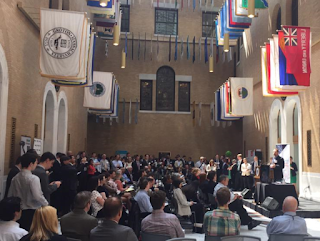Friends and family ask what I do, and it takes a couple of sentences to describe products and services to help people save energy, reduce maintenance, move data, and improve governance. Lawyers and doctors and physicists and accountants and politicians and economists have it much easier. They can describe their professional services in a word. My thought is to make up a couple of professional classes.
If an "X"er/""X"ant/"X"ist/"X"ian is a professional expert in the "X" field who understands the science, technology, sociology and economics of "X". And offers professional services in "X"... then
1. Energist or Energer: Professional expert in the energy field. Understands the science, technology, sociology and economics of energy. Offers professional (often technical) energy consultation.
2. Optimizer: Professional expert in the optimization field. Understands the science, technology, sociology and economics of optimization. Offers professional (often technical) optimization consultation.
So I would style myself an Optimizer with a specialization in Energy and Metrology.
There are other parallels to such professionals too. It is considered "comic" (except amoung family and closest friends) to ask professionals specific service questions, without tacit realization you are engaging them in their profession (and the livelihood by which they feed their children). It is the age old funny story of meeting an orthopedic surgeon at a dinner party and asking about your backache.
It is considered declasse as a customer (but not as friend or family) to ask professionals to offer their service as an educational programme without paying a large multiple of the costs for the actual service itself. I mean if you, as a customer, ask a lawyer/doctor to teach you or your organization how to be a lawyer/doctor, he/she is well within their rights to ask for ten to twenty times their hourly rate to teach you how to do their job. I guess I am only bemused with individuals, but company-types should know better.
On the flip side of the equation, that is why some companies which have core law and finance needs have in-house lawyers and accountants, but they are paid well and have been trained in professional schools (which had a high initial cost) and are key to the company. The company realizes the value of having devoted personnel in such a core company function.Most companies are not there yet for energy and generalized optimization.



.jpg)


